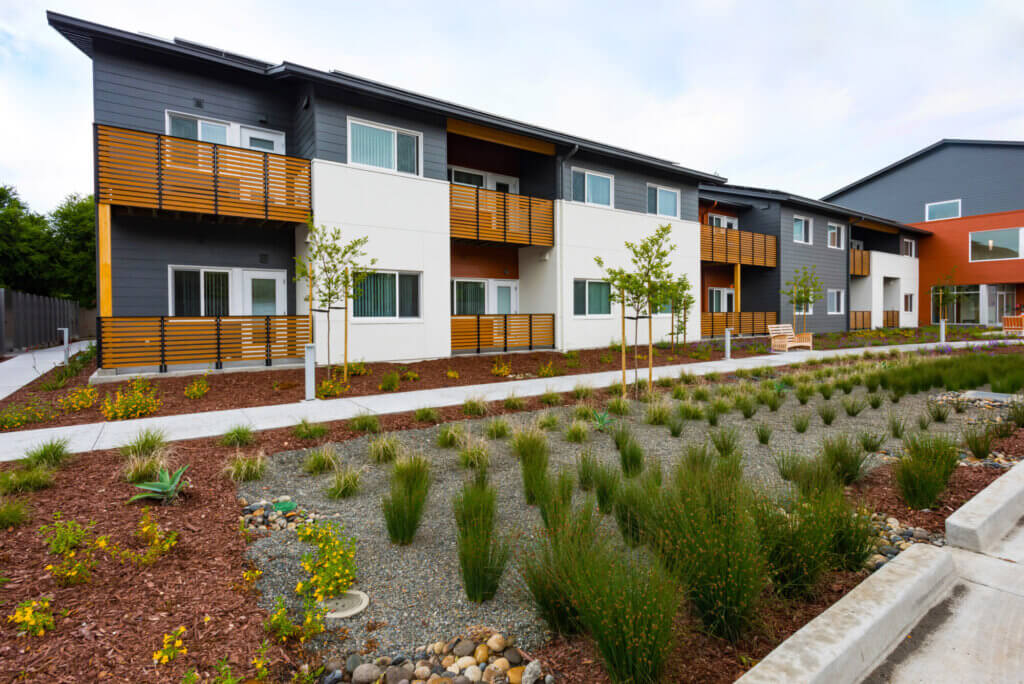Addressing Homelessness Through Hotel Conversions
Published On December 15, 2021
Acquisition and conversion of commercial properties, including hotels and motels, for housing has long been a strategy for rehabilitating distressed buildings. During the COVID-19 pandemic, unprecedented federal and state resources have enabled hotel/motel conversions on a broader scale. Many policymakers, developers, and homelessness services providers are interested in expanding the strategy as a way to quickly and cost-effectively expand the supply of affordable and permanent supportive housing.
The Terner Center has published a new paper Addressing Homelessness Through Hotel Conversions, which presents the results of an in-depth analysis of 13 hotel/motel acquisition projects from across the country, with a focus on conversions aimed at providing housing for people experiencing homelessness.
Published as part of the Housing Crisis Research Collaborative, the paper highlights effective strategies and makes recommendations for additional policies that would support the long-term success of conversion projects. Key findings include:
- Hotel/motel conversions can provide critical housing for people experiencing homelessness faster and more cheaply than new construction, when funding and political will align.
- A missing piece of the puzzle is often sufficient funds to support long-term operations and services; expanded access to rental assistance and long-term services are critical to promoting successful resident outcomes.
- Local opposition to affordable housing can derail viable projects; local and state land use laws that streamline the development process can be effective tools in efforts to end homelessness.





